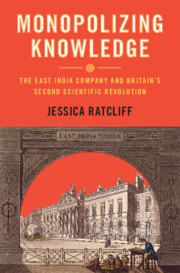Introduction
Published online by Cambridge University Press: 02 January 2025
Summary
The British East India Company is credited with great and terrible things. It is said to have had a direct hand in creating global capitalism, while at the same time contributing to modern forms of state.1 “The corporation that changed the world” built an infrastructure of armies, ships, fortified port cities and a global financial network that moved vast resources between Britain and Asia.2 The “original evil corporation” also forged a modern world economy in which imperialism and free markets went hand in hand.3 The Company transformed the political and economic landscape of huge portions of South and Southeast Asia, brought the Chinese Empire into war and left some formerly affluent regions of the Indian subcontinent utterly impoverished. It gave shape to the modern sense of “Britishness” and was instrumental in the creation of the largest, most densely inhabited and possibly dirtiest city the world had yet seen: London c. 1830.
- Type
- Chapter
- Information
- Monopolizing KnowledgeThe East India Company and Britain's Second Scientific Revolution, pp. 1 - 12Publisher: Cambridge University PressPrint publication year: 2025

